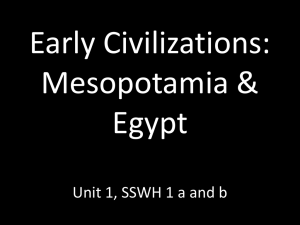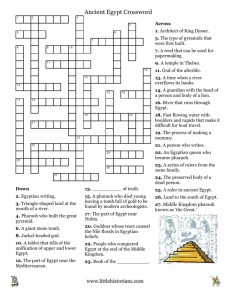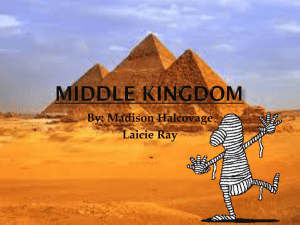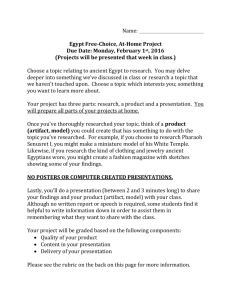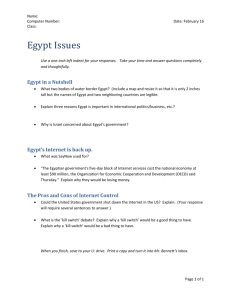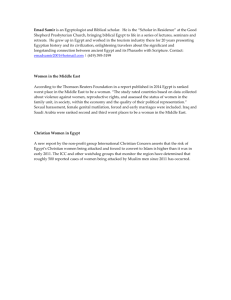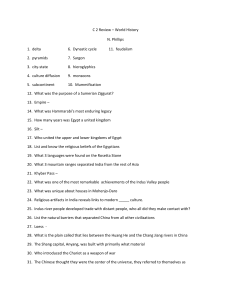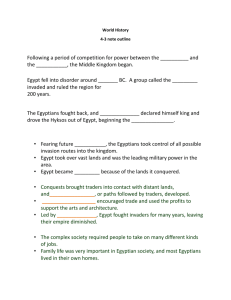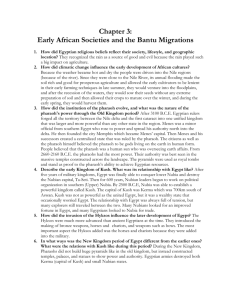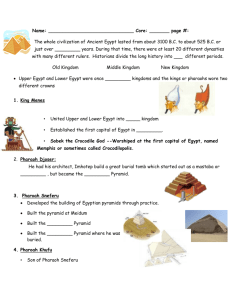SOL 3 Egypt GN Answers
advertisement
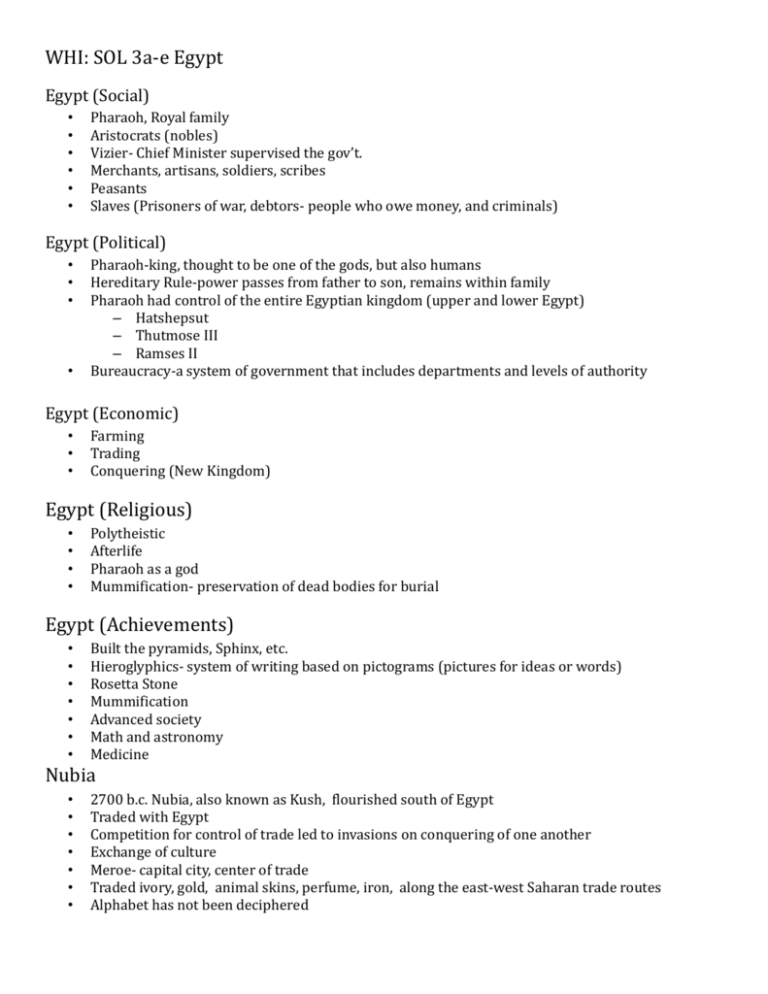
WHI: SOL 3a-e Egypt Egypt (Social) • • • • • • Pharaoh, Royal family Aristocrats (nobles) Vizier- Chief Minister supervised the gov’t. Merchants, artisans, soldiers, scribes Peasants Slaves (Prisoners of war, debtors- people who owe money, and criminals) Egypt (Political) • • • • Pharaoh-king, thought to be one of the gods, but also humans Hereditary Rule-power passes from father to son, remains within family Pharaoh had control of the entire Egyptian kingdom (upper and lower Egypt) – Hatshepsut – Thutmose III – Ramses II Bureaucracy-a system of government that includes departments and levels of authority Egypt (Economic) • • • Farming Trading Conquering (New Kingdom) Egypt (Religious) • • • • Polytheistic Afterlife Pharaoh as a god Mummification- preservation of dead bodies for burial Egypt (Achievements) • • • • • • • Built the pyramids, Sphinx, etc. Hieroglyphics- system of writing based on pictograms (pictures for ideas or words) Rosetta Stone Mummification Advanced society Math and astronomy Medicine Nubia • • • • • • • 2700 b.c. Nubia, also known as Kush, flourished south of Egypt Traded with Egypt Competition for control of trade led to invasions on conquering of one another Exchange of culture Meroe- capital city, center of trade Traded ivory, gold, animal skins, perfume, iron, along the east-west Saharan trade routes Alphabet has not been deciphered
